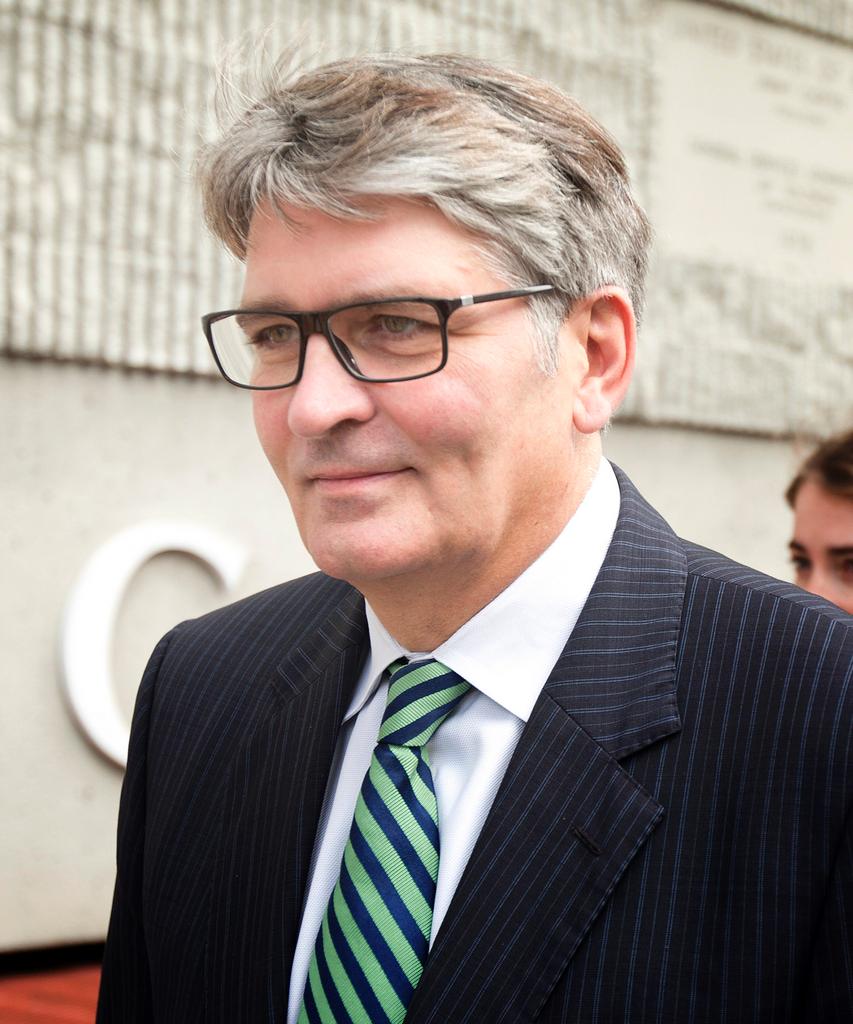
Ex-UBS executive Weil finally faces US court

The tax evasion trial of the former UBS head of wealth management, Raoul Weil, has opened in the United States. Weil is accused of masterminding a $20 billion (CHF19 billion) scheme to swindle the Internal Revenue Service (IRS).
Weil is the highest-ranked Swiss bank executive to go before the US courts and faces a lengthy jail term if found guilty. Unlike other bankers seized by the US, Weil has chosen to stand and contest the charges rather than cut a deal with the Department of Justice (DoJ) and run.
Among those given a so-called “sweetheart deal” by the DoJ, Weil’s former underling at UBS Martin Liechti is tipped to give evidence against his old boss during the trial. Liechti, former head of UBS wealth management Americas, was arrested in the US in May 2008 as a material witness, but was released back to Switzerland in August of that year.
A former top executive at the now defunct Neue Zürcher Bank was also reported to have handed himself in to the US authorities last week for the same purpose. The prosecution has gathered some 60 witnesses to testify against Weil and a mountain of documentary evidence that amounts to several million pages.
Weil appears determined to take on a US justice juggernaut that has steamrollered over entire banks. In previous cases brought before the courts by the DoJ, UBS and Credit Suisse were handed swingeing fines while Wegelin was broken up and destroyed. Two other Swiss banks have also collapsed under the weight of criminal probes.
The long-running DoJ investigations have also delivered a death blow to the fabled Swiss banking secrecy tradition.
“He is looking forward to exercising his right to confront the charge in a courtroom before a fair and impartial judge and jury, where he expects to be exonerated,” Weil’s lawyer, Aaraon Marcu, said in January when his client pleaded not guilty.
Skeletons in closets
Stephen Kohn, head of the Washington-based National Whistleblower Center, still harbours some concerns that a deal could still be cut with Weil before the trial has reached its full conclusion. Kohn, who represented ex-UBS banker turned whistleblower Bradley Birkenfeld, thinks Weil’s knowledge of influential people who held UBS accounts may give him leverage.
“Had Weil been offered the same sweetheart deal terms as Martin Liechti, I’m sure he would have taken them straight away,” he told swissinfo.ch. “If the US does settle during the trial, we hope it does not sell the US tax payers short.”
“The evidence overwhelmingly points to Weil being a kingpin in an international tax laundering scheme that cost the US billions. The entire world would benefit from Weil fully disclosing all the facts related to illegal Swiss banking practices, not just in the US but worldwide.”
Kohn has been encouraged by the apparent toughening stance of the DoJ since UBS was fined $780 million in 2009. Credit Suisse was forced to pay three times as much earlier this year, partially because it did not cooperate as much as its rival bank.
Weil’s arguments in the Florida court will be followed closely on both sides of the Atlantic. If he puts up a fight, the 54-year-old could become something of a hero to Swiss banks that have for so long been used to caving in to the US, according to Neue Zürcher Zeitung journalist Zoé Baches.
“Weil could become a symbolic figure of sorts to the Swiss financial centre, even if he has not exactly aspired to this role,” she wrote in an opinion piece.
But it also remains a possibility that Weil’s defence strategy could lay the blame at the door of other senior bankers.
Witness travel fear
The months leading up to the trial have seen much legal wrangling over what type of evidence can be presented in court.
Weil won an important victory last week when the presiding judge said he would allow evidence from three defence witnesses to be heard via video link from London. The witnesses, who have not yet been named, do not want to travel to the US for fear of being arrested.
Weil’s legal team wanted the testimony to be broadcast from Zurich with a Swiss official present to make sure the witness did not break Swiss banking secrecy laws. The judge ruled that this could limit the evidence to an intolerable degree and interfere with cross-examination.
Following a motion from Weil’s defence team to dismiss the case on the basis that it would represent an unfair trial, the witnesses were allowed to give evidence from London. The US has reportedly given guarantees of safe passage for the witnesses to and from England for the purposes of the trial.
The same could not be said for Weil, who was originally indicted in 2008 and declared a fugitive from US justice in early 2009. He was arrested on a business trip in Italy a year ago whilst on the run from the US courts and was later extradited to the US.
The trial in Fort Lauderdale, Florida, is expected to last up to four weeks.
Swiss national Raoul Weil, 54, enjoyed a stellar career at UBS, having first worked for the Swiss Banking Corporation before it was merged into UBS.
Between 2002 and 2007 he was head of UBS’s international wealth management unit. In July 2007 he was promoted to chairman and chief executive of the bank’s global wealth management and business banking business. In November 2008, Weil was indicted by a Florida court for his alleged role in helping UBS US clients evade taxes. The charge sheet stated that the bank helped to conceal the identity of some 17,000 clients that held around $20 billion in assets at the bank.
Weil left UBS and was declared a fugitive from US justice by a Florida court in January 2009. In 2010, Weil joined the canton Schwyz-based Reuss Private Group, first as a consultant and then as chief executive of the financial consultancy group in 2013.
A ruling made this summer by the Swiss federal prosecutor’s office against a former UBS banker has highlighted the contradictions between Swiss and US law regarding the tax evasion probes.
The federal prosecutor ruled that the banker had committed economic espionage by handing over details of two UBS clients to US investigators. According to the order the banker breached Swiss data privacy laws but not its banking secrecy laws.
The banker who worked for UBS between 2005 and 2009, was arrested in a sting operation in Miami in 2010. He was released a year later, with a five year suspended jail sentence, after cooperating with the US authorities. In July of this year, the Swiss prosecutor handed him a CHF6,000 fine and ordered him to pay more than CHF7,000 in costs. The sentence was suspended for two years.

In compliance with the JTI standards
More: SWI swissinfo.ch certified by the Journalism Trust Initiative
































You can find an overview of ongoing debates with our journalists here . Please join us!
If you want to start a conversation about a topic raised in this article or want to report factual errors, email us at english@swissinfo.ch.